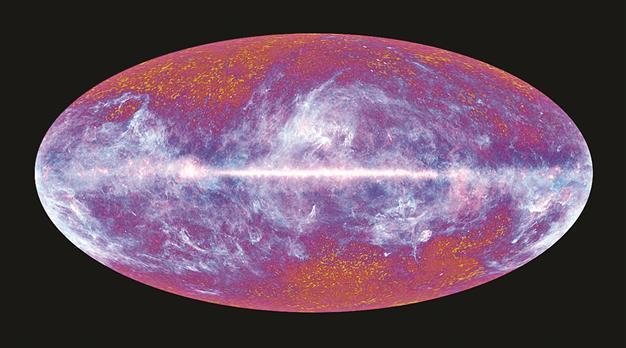Study says universe is older than thought
CAPE CANEVERAL, Florida - Reuters

AFP photo
Closer scrutiny of radiation left over from the creation of the universe shows the Big Bang took place about 13.8 billion years ago, 100 million years earlier than previous estimates, scientists said March 21.The findings are among the first results from analysis of data collected by the European Space Agency’s Planck spacecraft, which is providing the most detailed look to date at the remnant microwave radiation that permeates the universe.
This relic radiation was first detected in 1964 and later mapped by two NASA spacecraft, COBE, launched in 1989, and WMAP, which followed two years later. With even greater sensitivity, Planck has picked out details of tiny temperature variations in the so-called cosmic microwave background.
The fluctuations, which differ by only about 100-millionths of a degree, correspond to slightly more dense regions of space, places that later gave rise to the stars and galaxies that fill the universe.
“It’s as if we’ve gone from a standard television to a high-definition television. New and important details have become crystal clear,” Paul Hertz, NASA’s director of astrophysics, told reporters on a conference call.
Overall, the new data fits well with existing models of how the universe evolved, but it presents some new puzzles as well. Compared to the previous best measurements, the universe is a little older and, surprisingly, is expanding a little more slowly than currently accepted standards.
















